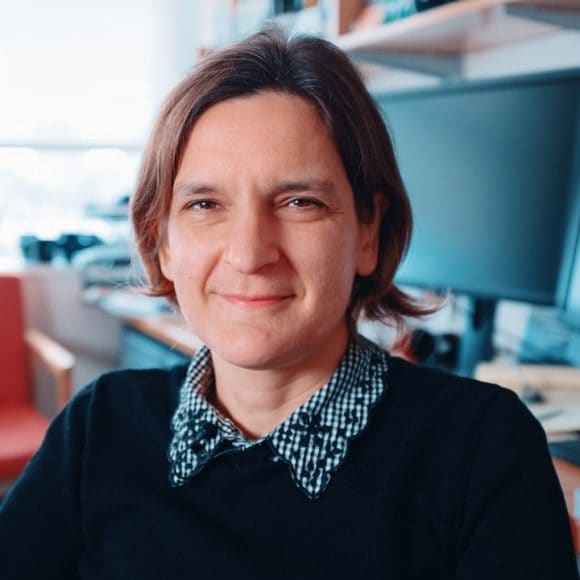What's the positive impact of diversity in economics?
The field of economics is still dominated by men and there are too few people from different backgrounds. Find out what Nobel Laureate Esther Duflo says on the subject.
Even in 2020, there is still a limited number of women choosing to study economics and become economists.
For Esther Duflo, who shared the 2019 Sveriges Riksbank Prize in Economic Sciences in Memory of Alfred Nobel with her husband Abhijit Banerjee and Michael Kremer, "for their experimental approach to alleviating global poverty", this is limiting creative solutions to problems.
“Certainly, you can see effects on the economic field and the profession. I think if people who are studying economics are very homogeneous then what they are thinking about a problem is also very homogeneous,” Duflo says.

“You need more diversity of perspective and experience to have more diversity of research topics and points of view on those topics. So the field is all the poorer if we don't have women and if we don't have other minorities".
Female economists are needed
Female economists are needed
Duflo explains how she was speaking to her husband Banerjee about how few graduate and PhD students in his economics faculty were female. There is a big contrast with science, mathematics and engineering, where there has been a substantial increase in the number of women at all levels.
“We are wondering, how come it has not changed?” she says.
One reason could be that economists tend to believe in markets and that things should just flow in their natural way, without necessarily intervening to change a situation. Duflo also thinks the financial crisis was particularly discouraging for women.
“I think it shed a light on economists as focused on making money and connected to the financial sector, which was not a very good image in general and maybe particularly so for women. Women economists tend to do work on fields which are to do with public policies and improving the world, not just making money,” she explains.
Inequality in economics is a big issue
Diversity is a key element in Duflo’s thinking and work and is covered in her most recent book with Banerjee, about how economists can eliminate some of the big issues of the day which are at the heart of political discussions. These also include immigration, trade, economic growth, inequality, climate change and social policy.”
“In the economics department at MIT we are starting to think about what to do. Our idea is that already with high school students, certainly with college students, to try to convey to them that economics is actually a way of thinking about the most important problems that the world is facing today,” Duflo says.
“Maybe if we could get that across better, then more women and minorities would decide that actually it's worth spending the time and studying to become economists.”
Has this question inspired you?
Has this question inspired you?
Get the latest Nobel Perspectives updates delivered to you.
Has this question inspired you?
Has this question inspired you?
Get the latest Nobel Perspectives updates delivered to you.



